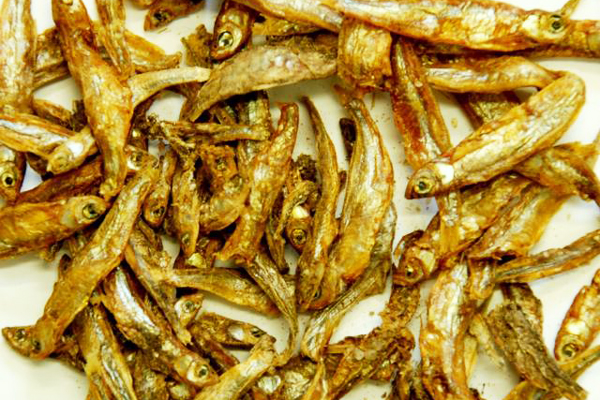

Greyhound Bay was once a place where old ships came to die. A wild stretch of coast on the western edge of the Sahara, its shallows made a convenient, if desolate, spot to scuttle an obsolete trawler, freighter or tug. So many vessels went to their graves here, the nearby port of Nouadhibou seemed captive to a ghostly armada keeping vigil over the dunes.
Today, navigators plotting a course for this gateway to the West African nation of Mauritania have no intention of abandoning ship. Turkish fishing boats bob at anchor, laundry strung out to dry above deck. In the open sea, the convex hulls of Chinese vessels carve V-shaped wakes through the swells. Nearer shore, nomads-turned-octopus-catchers scan the surface through the eye-slits of headgear that once shielded them from sandstorms.
But the most lucrative activity of all takes place behind high walls. It would be easy to miss entirely — were it not for the stomach-turning stench.
The hungry machines of Africa Protéine are producing fishmeal – a nutrient-laden powder that fuels the $160 billion aquaculture industry. One of the world’s fastest-growing food sectors, aquaculture is rapidly overtaking wild-capture fisheries as the biggest source of fish for human consumption.
From the shrimp ponds of China’s river deltas to the salmon cages of Norway’s fjords, the industry thrives by feeding fish to other fish. Its needs are so voracious, roughly 20 percent of the world’s wild-caught fish don’t even go near anyone’s plate but are instead ground up to make fishmeal.
With relentless demand from China pushing fishmeal prices to record highs, companies have set their sights on West Africa as a new source of supply. From state-owned conglomerates to adventurous entrepreneurs, Chinese investors are racing to build new factories on the shores of Mauritania and its two neighbors to the south, Senegal and Gambia.
But in the rush for sardinella, global business interests are snatching a staple of West Africa’s diet from the people who need it the most. And the blades of the grinding machines are posing a new threat to the species at a time when climate change already has sardinella swimming for its life.
“In four or five years, there won’t be any fish stocks left; the factories will close, and the foreigners will leave,” said Abdou Karim Sall, president of an association of small-scale fishermen in Senegal known by its French acronym, Papas. “We’ll be left here without any fish.”
Climate change is not only displacing sardinella from their traditional habitat, it’s putting pressure on the fish in another, indirect way, by increasing the incentives for West African fishmeal production even further.
Demand for fishmeal has already caused Mauritania’s annual catch of sardinella to surge from 440,000 tons to 770,000 tons within the space of a few years, according to a European Union-funded report published in 2015. Senegalese boats working under contract to the plants increased their landings tenfold between 2008 and 2012 alone, the report found. The Canary Current’s fish stocks, marine scientists say, won’t be able to withstand this kind of pressure for much longer.
Coastal communities in West Africa are already among the populations most vulnerable to the effects of climate change. Rising seas have begun to swallow coastal villages whole, while rougher weather is making fishing ever more perilous. Droughts and irregular rainfall have forced farmers to abandon their land and head for the shore, swelling the fast-growing ranks of men whose best hope of feeding their families lies beyond the breakers.
“We could face a catastrophic situation,” said Patrice Brehmer, a marine scientist at IRD-France, who co-authored the study revealing that warming waters are pushing sardinella northward.
The growing imbalance between people and nature in the Canary Current has fishermen wondering if they will soon be forced to return to the poverty of their ancestral villages.
Ibrahima Samba once scratched a living by growing peanuts and millet on his family plot outside the Senegalese town of Mbour. When the rains began to arrive either too early or too late, he joined other farmers swapping their hoes for nets.
“We could see the climate changing: Things never worked out like we hoped, and there were always surprises,” Samba said. “With the sea, you go out today, you fish today, and you sell straight away – and you don’t need to be a real professional to do it. We saw the fisherman had beautiful cars and were building houses, so we joined them.”
After 22 years as a fisherman, Samba says climate change is once again threatening his livelihood, this time by chasing away sardinella. “Climate change doesn’t just affect the agricultural sector, but fishing as well,” he said. “People who sold their land may well have problems, because there’s a good chance we’ll have to go back to farming.”
”We could see the climate changing: Things never worked out like we hoped, and there were always surprises.”
Ibrahima Samba, farmer turned fisherman
 Contact Jaguza Support
Contact Jaguza Support